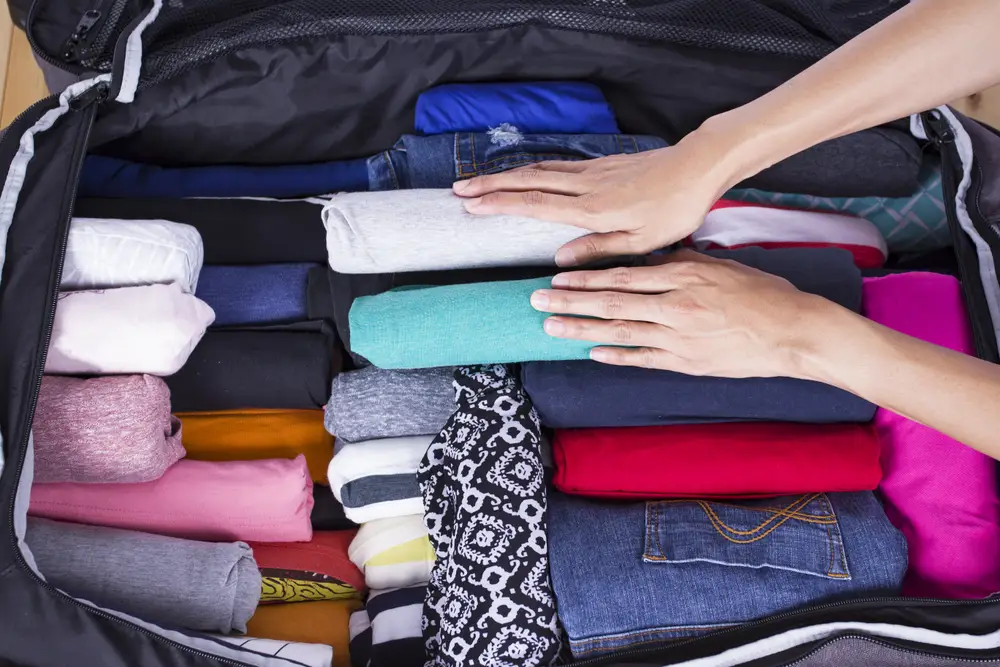
Securing the funds to support a cross-country relocation is one of the main worries when moving to a new state. It’s necessary to pay for professional services, relocation insurance, transportation expenses, and even unforeseen fees. Thankfully, you have a few options at your disposal to minimize moving expenses and ensure a seamless transfer.
It’s time to start the moving process after you’ve decided on a moving date and located a new home to live in. Here are eight practical actions you should take when moving across the nation.
Budgeting is crucial as moving a great distance is frequently more expensive than moving locally. However, how much does it cost to relocate across the nation? This will vary based on how big and far the move is. A cross-country move typically costs between $4,000 and $8,000, according to HomeAdvisor. Make careful to include all probable charges in your relocation cost calculation. To get an exact estimate based on your particular circumstances, you could even find it useful to use a free moving calculator online.

A long-distance move can get costly, as we’ve already talked about. It makes sense that you would want to know how to relocate your belongings across the nation as cheaply and effectively as possible. You might choose to:
Operate it independently: The least expensive method of moving across the nation is hiring a truck and doing the relocation yourself! Taking this path might save you hundreds of money. However, you will need to invest a lot of time and effort in this alternative. So, to help lessen your load, think about hiring relatives and friends!
Ship it: If moving isn’t too heavy for you, you can use UPS, FedEx, or the US Postal Service to ship your stuff. Many people ignore this easy choice, though.
Full-service moving firm: If you’re willing to pay for it, working with a full-service moving company will result in the least stressful move possible. From providing all packing supplies and materials to unloading your house, full-service movers will handle it all. A full-service move can cost anywhere between $1,200 to $29,000, with an average of $9,060, according to Move.org.
Read More: How to Get Rid of Old Furniture: Step-By-Step Guide
When traveling cross-country, the question is: should you drive or should you fly? When determining the most suitable form of transportation for your relocation requirements, ask yourself the following questions:
What number of items am I carrying with me?
How much time am I allowed to relocate?
Must I relocate an automobile?
Is an airport close to my future residence?
You might be better off renting a moving truck and driving there yourself if you have a lot to move, want to save money or have some more time.

Developing a packing plan, akin to a moving checklist, might assist you in managing the demanding chore of preparing your possessions for the relocation. Here are a few things to consider when formulating your strategy.
Pack ahead of time: It’s common to underestimate how much time packing takes before moving. A hassle-free move is more likely if you start early, and you’ll have plenty of time to go over your possessions.
Boxes should be itemized and labeled. This will make it easier for you to find your items when you’re unpacking. Boxes should be labeled according to room or contents. Additionally, don’t forget to indicate which goods are delicate or need extra care.
Relocating across the nation offers an opportunity to start over, so simplify and declutter your home. Packing, therefore, is an ideal way to get rid of anything you might not need or want. One of the best ways to declutter is to donate your items and hold a garage sale.
To receive mail at your new residence, remember to notify the U.S. Postal Service of your address change approximately one month before your move date.
It’s advisable to let your utility companies and other service providers know if your address has changed.
Think about contacting:
Gas and electricity suppliers
Providers of sewage and water treatment
Phone, cable, and internet service providers
Providers of healthcare and dental services
Insurance companies for life, health, and other policies
Statements mailed to your home by banks and credit card firms
The schools that your kids go

You can pack a travel bag with everything you’ll need for your move and the initial days after moving into your new house. It is advisable to bring along vital goods including devices, clothes, toiletries, critical documents, medications, wallet, and keys.
Packing your trip bag and bedroom last could also be a smart option. It’s easy to forget the little things, so putting this bag in last will help you remember to add them when you remember them.
In the relocation process, this is a crucial but frequently disregarded step. Giving your present house a thorough cleaning before you move out will guarantee that the new owner finds it immaculate. You should:
Vacuum, sweep, and mop unoccupied rooms.
Take out all the nails and screws from the walls.
Wash all of the doors, windows, outlets, and light switches.
Dust any surfaces that are required, such as ledges and ceiling fixtures.
You can also choose to have a cleaning service handle this task for you if it seems a little too much work.
Read More: How to Safely and Easily Move a Hot Tub Yourself?
Well done! It’s finally time for you to set out on this new voyage. The final task before you leave is to turn in your keys to your landlord or the new owner.
It is preferable to carry out this transaction face-to-face; you and your landlord or new owner should both sign a document attesting to the keys being returned on the scheduled date.